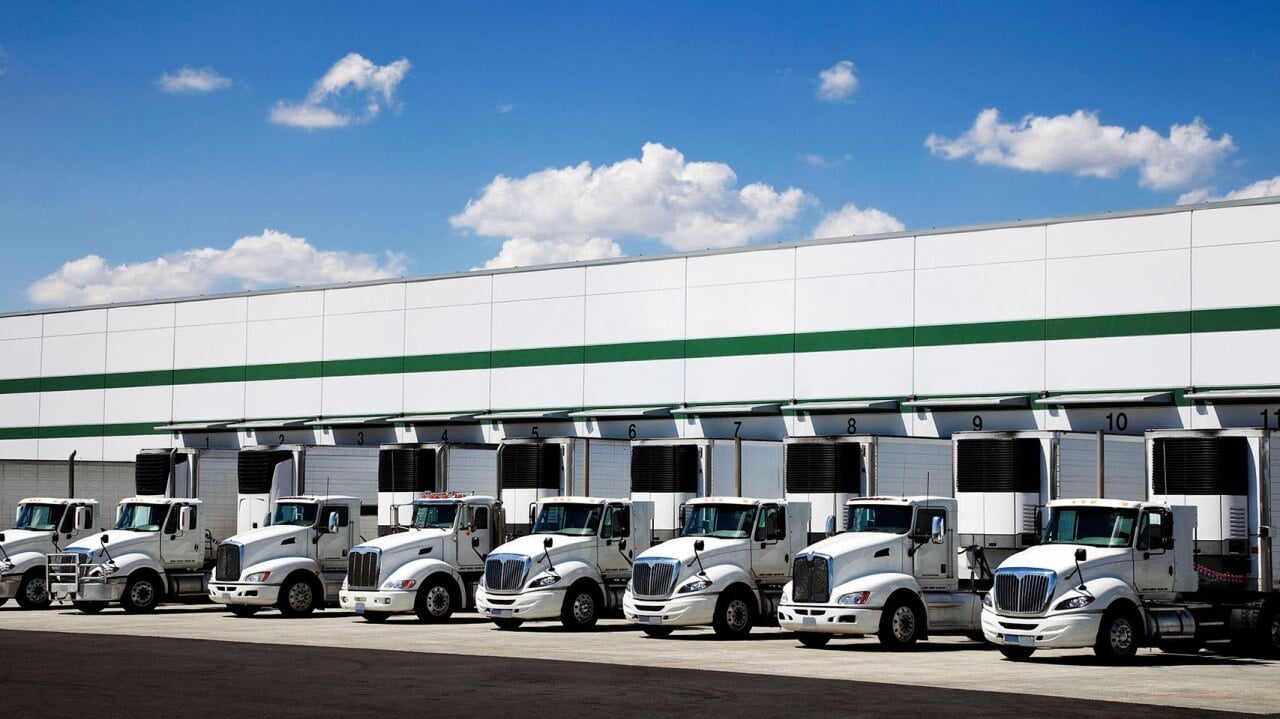Efficient fleet management starts with proactive maintenance. Rolon Mobile Truck Repair brings expert service directly to your location, minimizing downtime and maximizing productivity. Keep your fleet running smoothly with our comprehensive on-site maintenance solutions.
What Is Fleet Management?
In today's competitive business landscape, managing a fleet of commercial vehicles effectively is crucial for success. But for those unfamiliar with the term, the question arises: what is fleet management?
Fleet management refers to the comprehensive coordination and oversight of a company's commercial vehicles. It encompasses a wide range of activities, from vehicle acquisition and maintenance to driver behavior monitoring and fuel management. Essentially, it's about optimizing every aspect of your fleet operations to ensure efficiency, safety, and cost-effectiveness.
Who Is Responsible For Fleet Management?
Fleet managers are the individuals who oversee all aspects of fleet operations. Their responsibilities include:
- Vehicle Acquisition: Fleet managers determine the type and number of vehicles needed based on business requirements and budget constraints. They may also oversee the acquisition process, including negotiating purchase prices and managing lease agreements.
- Fleet Maintenance: Developing and overseeing preventive fleet maintenance schedules is crucial for keeping your commercial vehicles operational and minimizing unexpected downtime. Fleet managers ensure timely servicing and repairs are conducted.
- Driver Management: Fleet managers are responsible for recruiting, hiring, and training drivers. They also oversee driver behavior through monitoring tools and implement coaching programs to improve safety and fuel efficiency. For more information on strategies to keep your drivers happy and on the road, read about truck driver retention.
- Route Optimization: Planning efficient routes for deliveries or service calls is essential for maximizing productivity. Fleet managers utilize route planning software and real-time traffic data to create optimized routes.
- Compliance Management: Staying compliant with federal regulations regarding vehicle safety, driver hours of service, and environmental standards is crucial. Fleet managers ensure all necessary documentation is maintained and implement processes to guarantee compliance.
Why Is Fleet Management Important?
For businesses that rely on commercial vehicles, successful fleet management brings significant advantages. Here's a closer look at the key benefits:
- Improved Efficiency: Fleet management software provides real-time visibility into your fleet operations. You can track vehicle location, optimize routes, and ensure timely deliveries, leading to increased productivity.
- Enhanced Safety: Driver behavior monitoring can identify risky driving habits and provide coaching opportunities, ultimately improving overall road safety for both your drivers and the public.
- Reduced Operational Costs: Fleet management solutions can help you optimize fuel consumption through route planning and driver behavior monitoring. Additionally, you can leverage preventative maintenance schedules to minimize downtime and extend vehicle lifespan, leading to significant cost savings.
- Streamlined Compliance: Electronic logging devices (ELDs) ensure compliance with federal regulations regarding driver hours of service (HOS). Fleet management systems can also seamlessly integrate with ELDs, simplifying data collection and reporting.
- Informed Decision-Making: Data gathered through fleet management software provides valuable insights into your fleet's performance. This data can be used to make informed decisions regarding vehicle acquisition, maintenance schedules, and overall fleet optimization strategies.
Core Functionalities Of Fleet Management Systems
Now that we understand the importance of fleet management, let's delve into the core functionalities of fleet management systems (FMS):
- GPS Tracking: Real-time GPS tracking allows you to monitor the location and movement of your vehicles, enabling efficient route planning and dispatching.
- Fuel Management: FMS can track fuel consumption and identify areas for improvement. This can involve optimizing routes, monitoring driver behavior to minimize idling, and negotiating better fuel rates with suppliers.
- Maintenance Management: Fleet management software helps streamline maintenance schedules by providing reminders for preventive maintenance tasks and tracking service history. This proactive approach reduces the risk of unexpected breakdowns and keeps your vehicles on the road.
- Vehicle Inspections: FMS can facilitate a standardized vehicle inspection process, ensuring all safety checks are completed and documented. This not only promotes driver safety but also helps avoid potential fines for non-compliance with regulations.
- Driver Behavior Monitoring: By monitoring driver behavior such as speeding, harsh braking, and idling, fleet management systems can identify areas for improvement and provide coaching opportunities. This not only enhances safety but also contributes to fuel efficiency.
- Reporting and Analytics: FMS generates comprehensive reports providing valuable insights into fleet performance. You can analyze data on fuel consumption, driver behavior, maintenance costs, and route efficiency to identify areas for improvement and make data-driven decisions.
GPS Tracking: The Eyes Of Your Fleet
GPS tracking is a fundamental component of fleet management. It provides real-time visibility into the location and movement of your vehicles. By leveraging GPS technology, you can:
- Optimize Route Planning: Identify the most efficient routes to minimize fuel consumption and travel time.
- Improve Dispatching: Assign the closest vehicle to a job, ensuring faster response times and increased productivity.
- Monitor Driver Behavior: Track speeding, harsh braking, and excessive idling to improve safety and fuel efficiency.
- Recover Stolen Vehicles: Utilize GPS tracking to pinpoint the location of stolen vehicles and work with law enforcement to recover them.
- Geofencing: Set up virtual boundaries to receive alerts when vehicles enter or exit specific areas, ensuring compliance with company policies and regulations.
Fuel Management: Controlling Your Fuel Costs
Fuel costs can significantly impact your bottom line. Effective fuel management strategies can help you reduce expenses and improve efficiency. Key strategies include:
- Fuel Card Programs: Implement fuel card programs to monitor fuel usage, track expenses, and negotiate better rates with fuel suppliers.
- Driver Coaching: Educate drivers about fuel-efficient driving techniques, such as avoiding aggressive acceleration and braking, and maintaining proper tire pressure.
- Idle Time Reduction: Monitor idle time and implement policies to minimize unnecessary idling, which can significantly impact fuel consumption.
- Fuel Theft Prevention: Utilize fuel management software to track fuel levels and identify potential theft or unauthorized usage.
The Benefits Of Implementing A Fleet Management Solution
Investing in a robust fleet management solution offers a plethora of benefits for businesses of all sizes:
- Increased Efficiency: Streamlined operations, optimized routes, and improved communication lead to significant gains in overall efficiency.
- Real-Time Visibility: A clear view of the health of the company’s fleet assists in proper maintenance scheduling.
- Reduced Costs: Lower fuel consumption, minimized maintenance costs, and improved driver behavior translate to substantial cost savings.
- Enhanced Safety: Real-time driver monitoring, coaching programs, and improved vehicle maintenance contribute to a safer driving environment.
- Improved Customer Satisfaction: Timely deliveries and efficient service calls enhance customer satisfaction and loyalty.
- Data-Driven Decision-Making: Fleet management systems provide valuable insights into fleet performance, enabling data-driven decision-making.
- Streamlined Compliance: Automated reporting and compliance tracking ensure adherence to regulations and avoid costly penalties.
Vehicle Maintenance: The Backbone Of Fleet Operations
Effective vehicle maintenance is crucial for ensuring the reliability, safety, and longevity of your fleet. By implementing a robust maintenance program, you can:
- Reduce Downtime: Proactive maintenance helps prevent breakdowns, minimizing downtime and maximizing vehicle availability.
- Improve Fuel Efficiency: Well-maintained vehicles consume less fuel, leading to cost savings.
- Enhance Safety: Regular inspections and maintenance ensure that vehicles are operating safely and reliably.
- Increase Vehicle Lifespan: Proper maintenance can extend the life of your vehicles, reducing the need for frequent replacements.
Key elements of a comprehensive vehicle maintenance program include:
- Preventive Maintenance: Regular inspections, oil changes, tire rotations, and other scheduled maintenance tasks to identify and address potential issues before they escalate.
- Predictive Maintenance: Utilizing advanced technologies, such as telematics and sensor data, to predict potential failures and schedule maintenance proactively.
- Corrective Maintenance: Addressing breakdowns and repairs as they occur to minimize downtime.
- Maintenance Records: Maintaining accurate and up-to-date records of all maintenance activities to track vehicle history and compliance with regulations.
Driver Behavior Monitoring: Promoting Safety And Efficiency
Driver behavior plays a crucial role in fleet safety and efficiency. By monitoring driver behavior, you can:
- Identify Risky Driving Habits: Detect speeding, harsh braking, and excessive acceleration, which can lead to accidents and increased insurance costs.
- Provide Targeted Coaching: Offer personalized coaching to improve driver performance and reduce the likelihood of accidents.
- Reduce Fuel Consumption: Encourage fuel-efficient driving techniques to lower fuel costs and environmental impact.
- Improve Compliance: Ensure adherence to hours-of-service regulations and other compliance requirements.
By effectively implementing GPS tracking, fuel management, and driver behavior monitoring strategies, you can significantly improve the efficiency, safety, and profitability of your fleet operations.
Benefits Of Reporting And Analytics In Fleet Management Systems
A quality FMS can help improve multiple aspects of the care of any company’s vehicles.
- Improved Decision-Making: Data-driven insights help make informed choices about vehicle acquisition, maintenance schedules, and operational strategies.
- Enhanced Compliance: Monitoring vehicle usage and driver hours of service can help ensure compliance with regulations and avoid penalties.
- Optimized Maintenance: Predictive maintenance strategies based on data analysis can help reduce downtime and maintenance costs.
- Better Customer Service: Real-time tracking and optimized routing can improve delivery times and customer satisfaction.
- Reduced Operational Costs: By identifying areas for improvement in fuel consumption, maintenance, and labor costs, fleet managers can significantly reduce operational expenses.
These reports and analytics provide businesses with workable intel regarding fleet care and performance.
What Is Fleet Management? Effective Control Of A Team’s Vehicle Array
Effective fleet management is critical for businesses that rely on commercial vehicles. By implementing a comprehensive fleet maintenance program, you can optimize vehicle performance, reduce operational costs, and enhance overall efficiency. Regular inspections, timely repairs, and proactive maintenance strategies are essential for ensuring the safety, reliability, and longevity of your fleet. Additionally, leveraging advanced technologies such as telematics and GPS tracking can provide valuable insights into vehicle performance and driver behavior, enabling data-driven decision-making. By prioritizing fleet maintenance and adopting innovative solutions, businesses can achieve significant cost savings, improve customer satisfaction, and strengthen their competitive position.
Fleet Management Conclusion
Effective fleet management is critical for businesses that rely on commercial vehicles. By implementing a comprehensive fleet maintenance program, you can optimize vehicle performance, reduce operational costs, and enhance overall efficiency. Regular inspections, timely repairs, and proactive maintenance strategies are essential for ensuring the safety, reliability, and longevity of your fleet. Additionally, leveraging advanced technologies such as telematics and GPS tracking can provide valuable insights into vehicle performance and driver behavior, enabling data-driven decision-making. By prioritizing fleet maintenance and adopting innovative solutions, businesses can achieve significant cost savings, improve customer satisfaction, and strengthen their competitive position.
Optimize Your Fleet Today
Rolon Mobile Truck Repair brings expert fleet maintenance directly to you! Reduce your downtime, improve productivity, and control costs with our on-site mobile fleet services to keep your trucks and operations running smoothly. Contact us today!
FAQs
- What is a fleet management system?
A fleet management system (FMS) is a software solution used to manage and optimize fleet operations. It includes functionalities such as GPS tracking, fuel management, driver behavior monitoring, and maintenance scheduling to ensure the efficient and cost-effective use of commercial vehicles. - How does a fleet management system work?
A fleet management system works by integrating various tools and technologies such as GPS tracking, fuel management, and driver behavior monitoring. It collects real-time data on fleet operations, which fleet managers use to make informed decisions, optimize routes, reduce fuel costs, and ensure compliance with regulations. - What is a fleet management company?
A fleet management company is an organization that provides fleet vehicle management services to businesses. They handle aspects like vehicle acquisition, maintenance, driver management, and compliance, allowing companies to focus on their core operations while ensuring efficient fleet management. - What are fleet services?
Fleet services refer to the range of services provided to manage a company's fleet of commercial vehicles. These services include vehicle maintenance, GPS tracking, fuel management, driver training, and compliance management to ensure safe and efficient fleet operations. - What is a fleet manager?
A fleet manager is responsible for overseeing all aspects of fleet management operations. This includes vehicle acquisition, maintenance, route optimization, driver management, and ensuring compliance with regulations. Their goal is to maximize efficiency, minimize costs, and maintain the safety and reliability of the fleet.





